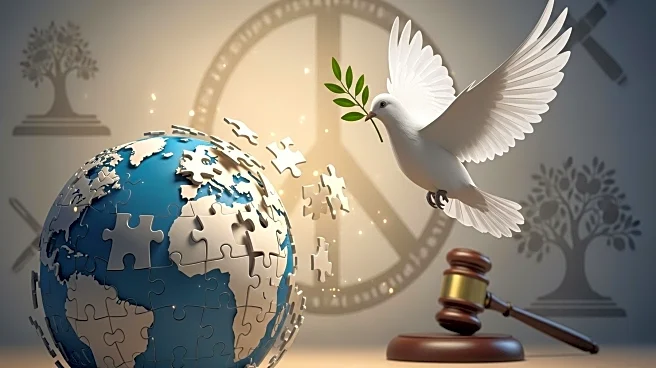What is the story about?
What's Happening?
President Trump's 20-point peace plan for Gaza has been presented as a potential solution to end the conflict and bring 'eternal peace' to the Middle East. However, the plan's details remain vague, raising concerns about its feasibility. While Israeli Prime Minister Benjamin Netanyahu supports the plan, critics argue that Trump's optimism is unwarranted given the lack of clarity. The proposal includes disarmament and governance changes in Gaza, but many aspects require further negotiation. The plan has been met with mixed reactions from regional players and stakeholders.
Why It's Important?
The plan's ambiguity poses challenges for its implementation and acceptance by key stakeholders, including Hamas and regional governments. Its success or failure will significantly impact regional stability and U.S. diplomatic efforts in the Middle East. The plan's potential to end the conflict and initiate reconstruction is substantial, but its vague details could hinder progress.
What's Next?
Further negotiations are needed to clarify the plan's terms and ensure stakeholder buy-in. The involvement of regional players like Qatar and Turkey in mediation efforts adds complexity to the process. The plan's implementation, if agreed upon, will face logistical and security challenges.
Beyond the Headlines
The plan raises questions about the future governance of Gaza and the role of international bodies in peace processes. Ethical considerations, such as the rights of Palestinians and the legitimacy of imposed governance structures, are central to the debate. The plan's long-term impact on U.S. foreign policy and regional alliances is also significant.
















